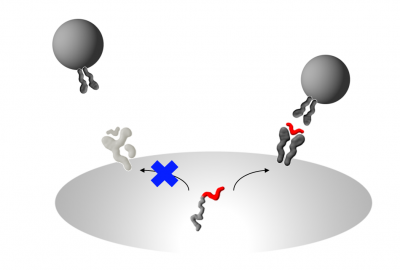Immune evasion in MSI cancer
Due to the high neoantigen load caused by DNA mismatch repair deficiency, MSI cancer cells and pre-cancerous lesions are a target of immune attack and surveillance. Therefore, emerging MSI cancers develop different strategies to evade immune attacks. One of the most common mechanisms enabling immune evasion is the acquisition of mutations in the Antigen Presentation Machhinery (APM). Most commonly, mutations of the Beta-2-microglobulin (B2M) gene, an essential component of the MHC complex that presents tumor antigens to the immune system, are observed. B2M-mutant cancer cells cannot be recognized by T cells and remain unattacked. Interestingly, we could demonstrate that certain mutations in the APM are associated with better prognosis and less distant metastasis development.
We are currently working on a systematic landscape of immune evasion mechanisms in MSI cancers in order to understand how the host’s immune cells shape the phenotype of emerging MSI cancers. This understanding shall help to find new therapeutic targets and to design more efficient treatment and prevention approaches.
Prof. Annette Paschen, University Hospital Essen, Germany
Prof. Soldano Ferrone, Harvard Medical School, Massachusetts, US
Prof. Alex Duval, Saint-Antoine Hospital, Sorbonne University, Paris, France


